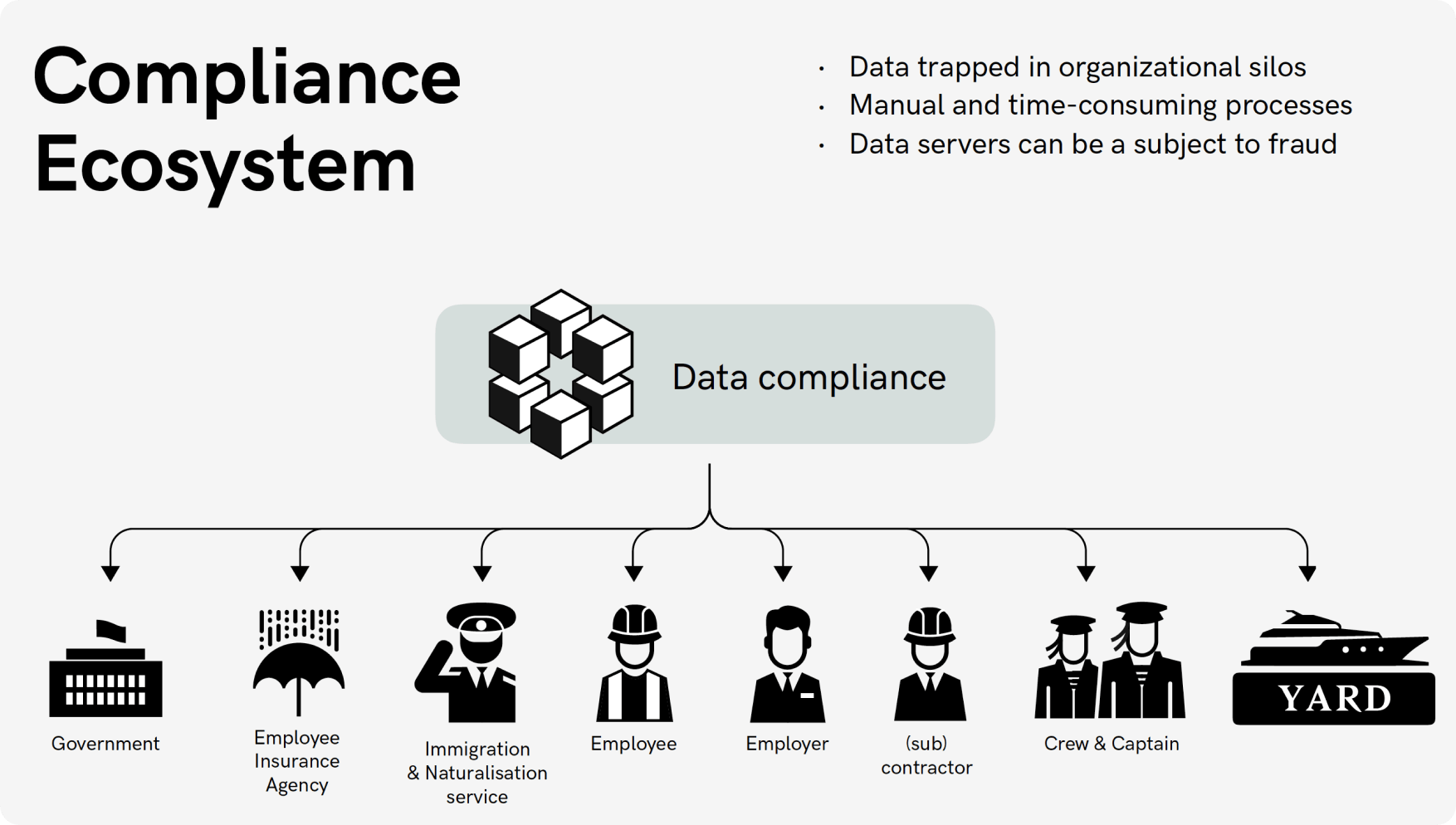case study
Proving the value
of a blockchain-supported
Oceanco compliance system
Blockchain layer for additional security
Magnetic Core and Oceanco, a Dutch builder of world-class custom superyachts, have completed a proof-of-concept project to use blockchain technology to validate subcontractor data. The solution provides an additional security layer and helps to fulfil the requirements of GDPR. This custom software product shows how the combination of quality UI, a blockchain security level, and clear business processes can reduce time waste and compliance-related risks for manufacturing companies.
As of today, Magnetic Core has delivered to Oceanco research findings and optimisation consultancy for the current version of the compliance system.

Challenge
Establish a range of blockchain capabilities based on fundamental blockchain characteristics to ensure data consistency and security
Solution
The POC solution reduces time spent when using the system, provides safe storage and iteration history in a blockchain layer, increases the fault tolerance of the system by eliminating single point of failure, and complements an existing security system.

How
blockchain
helps
Secure Logs & Legal Compliance
Blockchain secure time-stamping and logging will ensure that data is tamper-free, transparent, stamped and securely logged in blockchain. This allows for forensics, security audits and proof of GDPR compliance.
Prevent Malicious Tampering
Receiving notifications any time an anomalous event is detected.
Onboarding
Consent management, digital passport for the shipbuilding industry to simplify KYC procedures (might be considered for future system development)
Potential
Impact
25%
The improved solution can save the company up to 25% of work hours on a monthly basis
0
Secutity issues
Future development of the project may include a distributed database of subcontractors to reduce and actualise document workflow in an industry associated with subcontractor employee turnover.
There is a growing trend towards outsourcing and subcontracting activities in the shipbuilding industry, according to EIM Business & Policy Research, with some 50-70% of value being added by external subcontractors and suppliers. The expectation is that the trend will continue as the modern shipyard becomes a place of final assembly, with a focus on increasing cost-efficiency. Managing an ever-changing list of employees and tracking the permits and paperwork required for compliance is becoming increasingly difficult. The immutability of verified data, coupled with the ability to store only “digital fingerprints” of the data, opens up a great opportunity for the use of distributed ledger technologies. However, it is a subject that cannot be tackled by a single industry player. This should be a collective effort between business and EU officials to create a network for the whole industry, providing access to a shared database of legal EU work permits and compliance documents (such as A1 forms) for businesses and addressing other valuable use cases. In this specific case, distributed ledger advantages for automating compliance processes together with Dutch Social Insurance Bank and Chamber of Commerce document verification across the EU region can reduce paperwork and ensure subcontractor compliance with local and EU labour regulations.
The process of adding and verifying yard workers to the Oceanco system can be improved to serve its purpose in a more efficient way. It is not transparent to subcontractors and suppliers. Traditional record-keeping leaves information siloed and difficult to verify. It quickly becomes outdated and, what is more important, requires excessive effort from Oceanco’s internal team to verify workers and grant them access. Using blockchain can help solve these problems
Jaap Kouwenhoven, Director of Knowledge & Innovation OceancoView the next core memory
Tokenisation
of coworking
membership
model
Tokenisation
of coworking
membership
model
based on its own utility token which grants access to shared workspaces